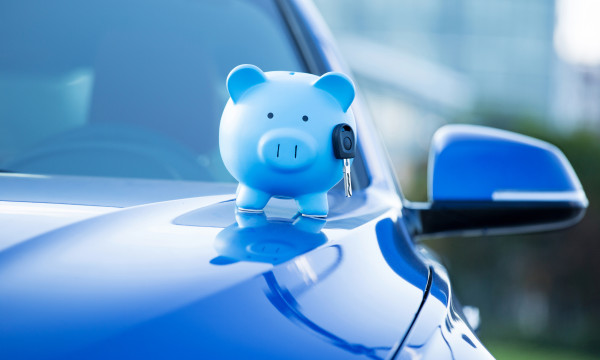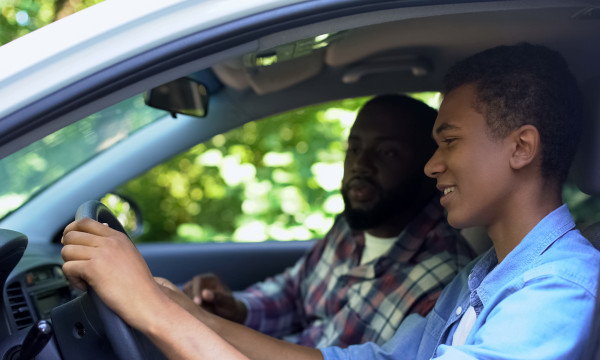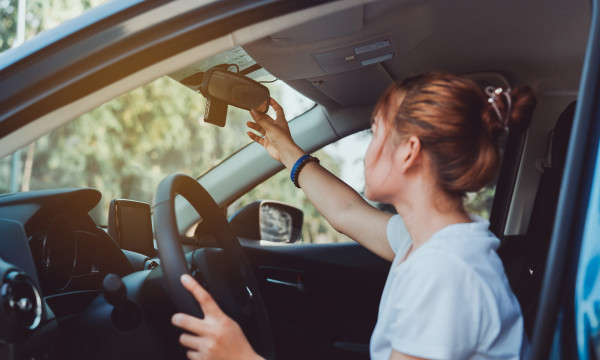Buying a car from a dealership or private seller
Read up on the two most popular methods for buying a pre-owned vehicle.

If you’re in the market for a pre-owned car, chances are you’re looking to buy from either a dealership or a private seller. So which should you choose? The good news is there’s no right or wrong answer, as both have their own benefits. Read on as we consider the strengths of both dealer and private purchases that can — and should — inform your decision.
Convenience and shopping
One big advantage to shopping for a car from a dealership is the selection you’ll find right off the bat — you can show up and begin to browse, or you can peruse the inventory online before you head to the lot to check out your favorites. Plus, you’ll find helpful, relevant information about each vehicle on the stickers affixed to the windows, and the dealership’s salespeople are readily available to thoroughly answer any questions you may have.
Contacting and visiting a private seller also has its merits: You can call or email the seller first to ask questions and decide whether you want to see the vehicle in person, and most private-seller listings are available to peruse online so you can get a good idea of whether you’re interested in a specific car before you reach out to the seller. And if a dealership setting is intimidating to you, you may appreciate the pared-down scope of meeting with a private seller.
Condition and history
One of the perks of purchasing from a dealership is that you know the vehicle you buy will come thoroughly cleaned and detailed — which means your prospective ride will look great. Even so, you’ll still want to put in the legwork to ensure you’re getting a good deal, especially if you’re purchasing a used vehicle. Another perk: Many dealerships offer certified pre-owned (CPO) vehicles, which means the car has been through official inspections and any necessary repairs and will come with a special warranty. The cost may be a little higher than a non-CPO used car, but for you, that cost may be offset by the peace of mind that you’re purchasing a reliable vehicle that’s in tip-top shape.
While private sellers don’t offer certification, it’s not unusual to find a vehicle with impeccable maintenance and well-documented service records. There’s also a good chance the seller has either kept the vehicle pristine or has put in the work to shine it up prior to listing it for sale. When you’re buying from a private seller, it’s just as crucial to do your due diligence, if not more so, to ensure that you’re getting a deal rather than taking on a lemon.
Both private sellers and dealerships should be able to shed some light on your prospective purchase’s history, but it’s still a good idea to check the vehicle’s history on a site like Kelley Blue Book or Autocheck (you’ll need the 17-character vehicle identification number) — and while you’re at it, check the vehicle’s value using KBB’s pricing tool or J.D. Power’s NADA used car guide so you’re ready for the next step.
Cost and financing
You’re likely to find that the asking price of cars sold by private sellers is often lower than that of dealerships. These folks are often willing to sell their vehicle for a bit lower than their asking price, either because they intentionally priced it higher or because they’re eager to sell it sooner rather than later. This is a nice perk and can be a great reward for the extra research and legwork.
Dealerships tend to be a little less flexible in terms of price negotiations. A dealer price has many conveniences/overhead expenses rolled into it, such as the sales and finance staff and even the reconditioning we just mentioned. But if you enjoy the dealer experience and the peace of mind that comes with buying from a dealership, then the price (even if it’s slightly higher) can be totally worth it.
Another dealer benefit is that they normally offer the option of trading in your current vehicle and putting that value toward the cost of the new vehicle, not to mentioning financing that vehicle for you so that you can make payments over time.
Private sellers generally don't offer financing options. However, this doesn’t mean you can’t set up financing through your local bank. They are usually adept at third-party sales, making it a non-event for both you and the seller. And if you have a current vehicle to sell, handling the sale yourself and applying the proceeds to your loan balance is also fairly simple.
Closing the deal
When you buy a car from a dealership, they often provide and/or complete the paperwork for you when you buy one of their cars, meaning the title and vehicle registration transfers are usually handled; all you need to do is sign. When you purchase from a private seller, you’re both responsible for correctly handling all the associated paperwork. We’ve got some insights to help make it easier.
Ultimately, whether you choose to purchase your vehicle from a local dealership or a private owner comes down to your own needs and preferences — your time frame, expertise, and even your finances will all play a role in your decision. No matter which route you choose, know that we are here to help with every step of the process.
Learning Center articles, guides, blogs, podcasts, and videos are for informational purposes only and are not an advertisement for a product or service. The accuracy and completeness is not guaranteed and does not constitute legal or tax advice. Please consult with your own tax, legal, and financial advisors.




